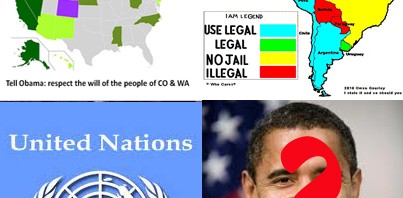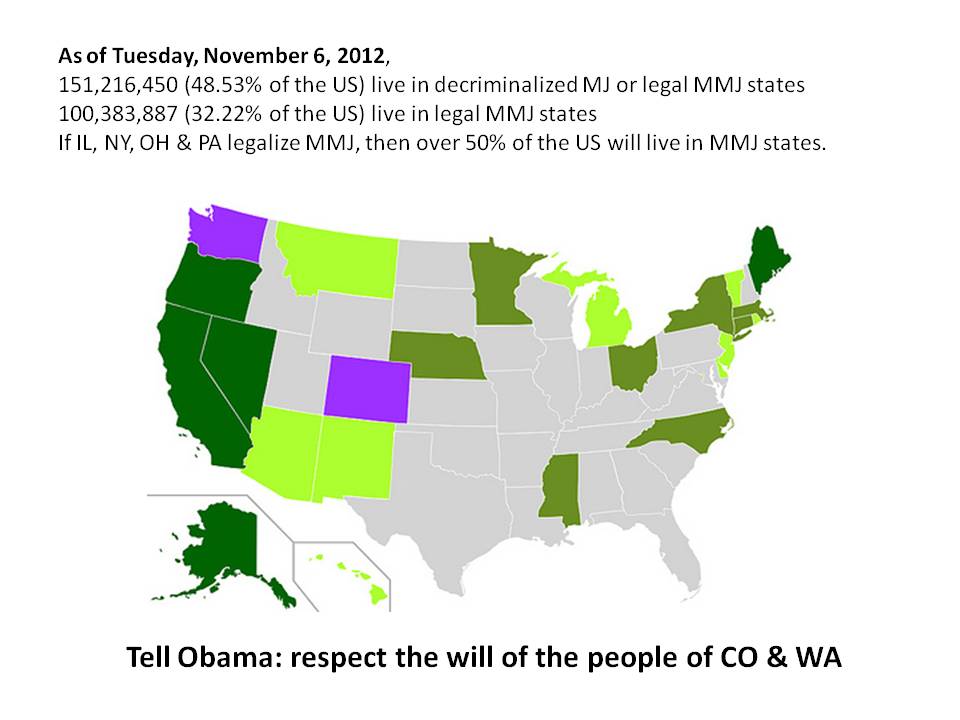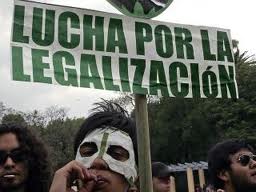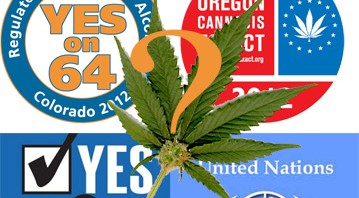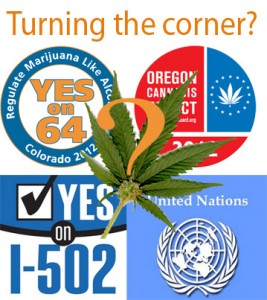How much longer can Obama postpone the unavoidable drug policy debate?
Something was set in motion on November 6, 2012, that could become irreversible with sufficient mobilization and could finally put an end to a century of prohibitionist policies. Reality seems to be dawning at long last that the war on drugs is a colossal, costly and destructive failure. A survey by the (ONG) “Asuntos del Sur” published on November 26 indicates support for the legalization of marijuana reaching 81% in Buenos Aires, 79% in Santiago de Chile and 73% in Mexico City among the 18 to 34 years old population.
As Uruguay moves resolutely towards the legalization of marijuana under state control, Argentina could be next in line. The Argentine Supreme Court already ruled the decriminalization of possession for personal use of all drugs. The leader of the center-left coalition Broad Progressive Front (Frente Amplio Progresista or FAP) Hermes Juan Binner, recently declared his support for the legalization of all drugs.
In Chile, Senator Ricardo Lagos Weber, son of ex-president Ricardo Lagos (2000-2006) presented a project of legalization of cultivation for therapeutic use and decriminalization of possession of small amounts. Ex-president Ricardo Lagos is a member of the Global Commission on Drug Policy.
Meanwhile, the 5-months long relative power vacuum in Mexico will finally be filled when President-elect Enrique Peña Nieto takes office on December 1st. Peña Nieto will travel to Washington on December 4th and the recent legalization of marijuana in Colorado and Washington will be high on the agenda. While he reiterated his personal opposition to legalization, in a Time interview published on November 27, Peña Nieto acknowledged that it may be time to reassess the War on Drugs and called for a hemispheric debate on its effectiveness. According to Peña Nieto, state legalization “creates certain distortions and incongruences, since it’s in conflict with the [U.S.] federal government… That will impact how Mexico and other countries in the hemisphere respond.” He even raised the possibility that Mexico itself may legalize marijuana.
While in Washington, Peña Nieto will also meet VP Joe Biden, so far a staunch and vocal opponent of legalization. Will Biden have his legal marijuana epiphany, just like he had his gay marriage epiphany few months ago? Finally, Peña Nieto will meet Secretary of State Hilary Clinton, whose husband famously didn’t inhale but just came out of the closet with Richard Branson and Morgan Freeman for the launch of the documentary “Breaking the Taboo”.
Other Latin American leaders, chief among them Colombia President Juan-Manuel Santos, call for an urgent debate on global drug policies.
In the US, the governor of New Hampshire, the last New England state without medical marijuana regulation, signaled his support while activists are pushing medical marijuana through the New York legislature. Meanwhile, other New England states are considering moving one step further and are preparing legislation to legalize marijuana for recreational use. Rhode Island and Maine made an announcement to that effect on November 15, and Vermont and Massachusetts are expected to follow soon, which would further alarm US’ Latin Americans allies.
After Obama’s solid reelection victory largely attributed to the 71% support of Latin voters, the clout of the US Latin community has been raised quite a few notches and Obama knows that he needs to tread lightly. Latinos are emerging as a critical political force in the US. Together with the African Americans, they have paid the highest price within the US for the war on drugs. Their grievances cannot be ignored much longer.
In such a context, Obama’s drug-policy quandary will only deepen until he recognizes the inevitability of an honest and open drug policy debate, putting science and sound policy-making over politicking and ideology, a debate that takes into account public opinion and the realities of the 21st century and acknowledges the costly failure of prohibition.
The almost month-long silence of the Obama administration will need to be broken sooner or later. The political cost of picking up a long-lost rear-guard battle might be more than Obama is willing to stomach; it would certainly demobilize a critical part of his electoral base and may prove costly in the 2014 election cycle. Even worse, it would accomplish very little and would most likely merely postpone the unavoidable. The times are changing, and they are changing at accelerating pace. With support for drug policy reform at all-time high in the youth population, support keeps growing is the general population as well with the generational change. The acceptability and normativity of marijuana use is also growing steadily as the ubiquitous green leaf invades screens big and small.
Prohibition has long been counterproductive, its message increasingly ignored or derided, and so are critical health warnings, severely minimizing the perceived danger of drug use. Credible studies on the long-term effects of substance use and abuse are sorely missing. Legalization with proper control and adequate flexibility would bring back science and much needed common sense and sanity where posturing, moralizing and politicking have long reigned unchallenged.
It is time to have an open, adult discussion about drug use in general. Both opponents and proponents of legalization have a tendency to caricature and hyperbole. All psychoactive substances, irrespective of their legal status, have recreational and medical uses as well as potentially harmful side-effects, and this includes marijuana, just as much as alcohol, tobacco, psycho-pharmaceuticals or cocaine and heroin. Marijuana is not harmless, as many activists would like us to believe, but it is far from the scourge prohibitionists claim it to be. The currently illicit drugs should be legalized and properly regulated BECAUSE of their harm potential and BECAUSE prohibition results in a total loss of control.
Jeffrey Dhywood
Investigative writer,
Author of “World War D – The Case against prohibitionism, roadmap to controlled re-legalization”
“World War-D” on Amazon: http://www.amazon.com/dp/0984690409/
Facebook page: http://www.facebook.com/worldward
Twitter: @JDhywood
jd (at) world-war-d.com

